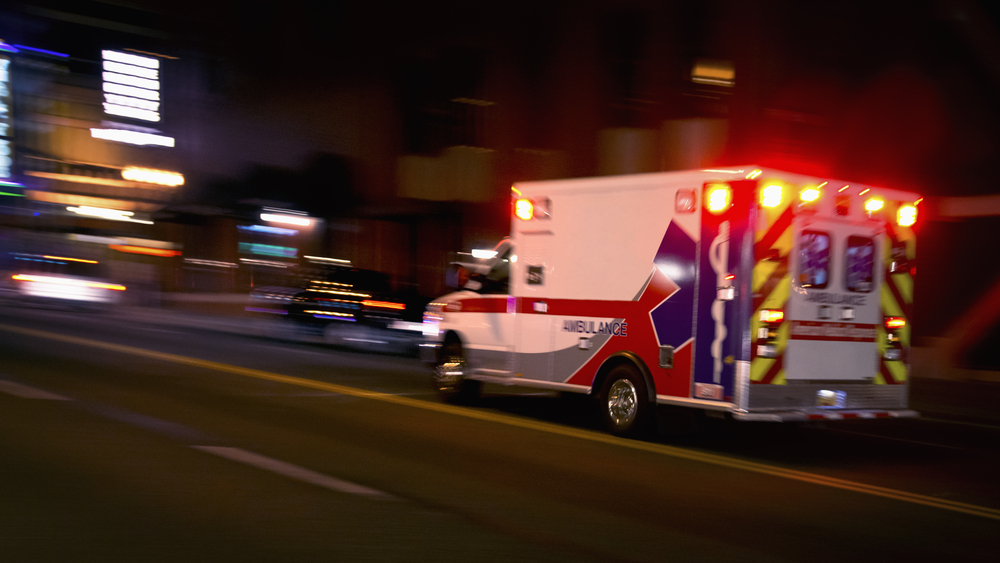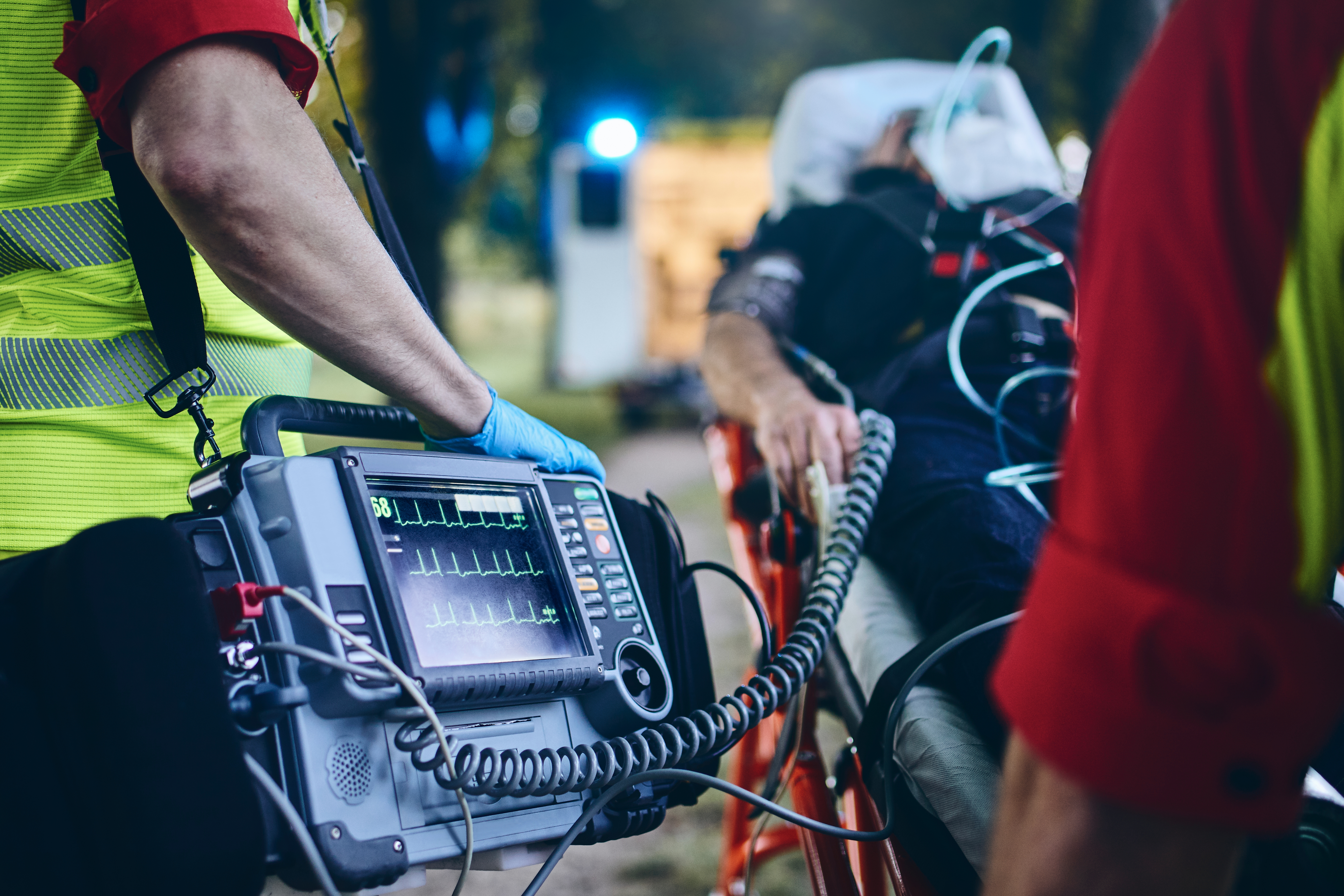The front line refers to the most forward point of the battle, also known as the tip of the speer. We are all conscripts fighting on this front line and racing to save as many lives as possible. We have an uphill battle with a subversive enemy who is elusive and empowered by a dysfunctional, federal abandoned, and uncoordinated healthcare system. Yet, we have thousands who are flocking to the frontline, at great personal risk. I am proud to be here and proud of all the healthcare workers who are unified in this fight. This gives me hope in limiting the spread and mortality of SARS-CoV2, however, I worry about our brother’s and sister’s, and their mental health during this time.

The pandemic has placed enormous strain on a system that was not designed to operate or respond to a crisis of this magnitude. The “system” is composed of human beings who were likely strained prior to COVID-19. They have been fighting for change long before this pandemic, to improve the quality of care and outcomes of patients. They have families, bills, school, obligations and a strong ethical will all placed at great personal risk in this fight. Hundreds of thousands of patients will die, without family at the bedside. Nurses, covered in PPE without a visible face, will be the final witness to deaths. EMTs and paramedics will be directed to not transport patients from home for hospice admission or without ROSC on scenes.
Our Mental and Physical Health
Tenley Roeder PMHNP-BC ACNP-BC, FNP-C relates the tremendous grief we will experience. “We are all experiencing some form of grief. The COVID-19 pandemic is not only an epidemiological crisis but also a very psychological one. While the situation provokes anxiety, stress, and sadness it is also a collective time of sorrow. We are ALL experiencing some sort of loss. Healthcare Providers are at great risk of working to the point of sheer exhaustion and mental breakdown without acknowledging they are in trouble.” Recognizing and understanding the warning signs of provider trouble before exhaustion can prevent a breakdown.
“Regular exercise and sound nutrition are as important as ever during this COVID-19 epidemic. As healthcare providers, you are exposed to a tremendous amount of mental and physical stress. PPE isn’t the only armor you need. By exercising and eating healthy, you are building a margin of protection against disease as well as lowering your risk of developing health conditions. Other obvious advantages include physical benefits like weight management, increased bone health, and muscle strength. However, more notably, your mental health, cognitive function, and sleep are also strongly susceptible to improvement.” According to Michelle Kinney, Crossfit coach and Gym Owner.

Tools and Tips
While we all experience death as part of the job, however, the volume will increase, as will the emotional toll. This will be followed by the deaths of colleagues on the front line. The loss of our battle buddies will be devastating. Some of us will develop fractures of our mental health, while others may shatter. As a community, we can fortify the line and our mental health, limiting the impact, and hold the line. We need to start now. What follows are suggestions for healthcare workers of all types.
Identify triggers:
Each of us will have different triggers, some dependent on role, and others based on our personal situation. Ask yourself and your partner, what, events would be critical to my infrastructure. How can I protect these and how can I enlist the help of friends and family for assistance.
Improve housing:
Housing will be central to healthcare providers, avoiding infecting other family members and maintaining an income. Work with local hotels to identify a safe place to house medical personnel.
Improve nutrition:
Many of us will become sick with SARS-CoV2, hopefully, with a mild case, nutrition and exercise will be essential. Improving VO2 and cardiac performance through exercise will increase the functional capacity of our lungs and provide an edge in fighting infection. Wearing a mask all day is dehydrating, we are limiting intake because of masks. Make a point to take a walk outside, get some fresh air without a mask and drink plenty of water.
Fortify bonds:
We may not be friends with everyone on shift and some relationships are strained, prior to the pandemic, we need to put those issues behind us now. Talk to your coworkers, resolve tense relationships and fortify your bonds in the common fight against COVID-19.
Reduce economic strain
If you are now a single income household, or lost income from secondary positions, talk to your supervisor early. Hospitals and local governments are making loans available. Managers and Chiefs need you focused on your duties, not on your financial strain, let them help you.
Resolve childcare issues:
Make accommodations for your children now, at least an emergency plan of where they can live in the event you are ill and cannot care for your children. Sit down with your spouse or partner and discuss potential situations and options for each. Write out your will, as ominous as it sounds, you do not want to leave your loved ones unprotected or financially burden in the event of your death.
Educate and over-communicate:
Information, policies, and procedures are moving at a break-neck pace, a significant source of frustration. If you are a boss, over-communicate and explain why you are making changes. Be honest and keep communication open, people want the most lead time available to significant changes in operations.
Improve sleep:
Resting your mind and body is critical to healing your body, from damage done during the front line fight. We are all pushing ourselves, seeing more patients, doing more for each other and our families. Sleep will help repair damage done and allow your mind to process the events of the day.
Peer support:
Lean on me. If you do not have a peer support group or a regular and reliable mechanism to provide peer/group critical incident stress debriefings (CISD), now is the time to start this program. Reach out to mental health providers in the community, or within your organizations for support and advice. How can we support our team members best?


